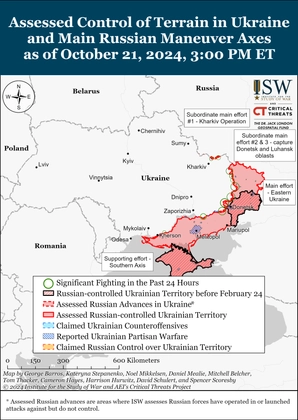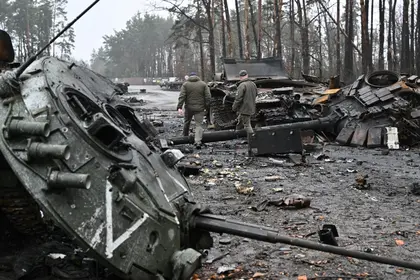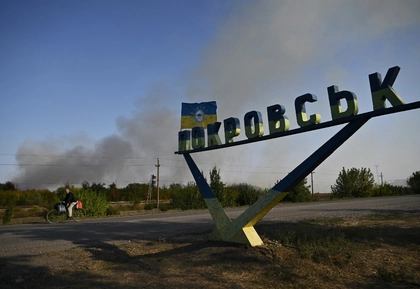Many articles and analyses on the potential fall, collapse and disintegration of the Russian Federation have emerged recently. It marks a huge shift from 324 days ago when so many expected Ukraine to do the same within days. Having witnessed the second-strongest army in the world collapse on the battlefield due to a combination of bad leadership, poor intelligence and planning, lack of combined arms and joint manoeuvre, flawed command and control, faulty logistics, bad technical designs, poor level of training, and much more, the table has turned.
There seems to be a general consensus that a Russian defeat in Ukraine means the end of Putin’s regime. Few analysts, however, are expecting Russia to emerge as a democratic country in the aftermath of the defeat. Quite the opposite, the potential scenarios range from a radicalisation of its current form to a collapse and disintegration altogether.
Ironically, several high-ranking (retired) Russian officers warned President Putin of this outcome in the months and weeks leading up to the full-scale invasion.
Colonel-General Leonid Ivashov, 78, wrote a letter titled “The Eve of War” in which he attacked Putin's policy of provoking a war despite Russia not facing any critical threats. He feared that the use of military force against Ukraine, firstly, would call into question the existence of Russia itself as a state; secondly, it would forever make Russians and Ukrainians mortal enemies. In addition, he argued that Russia would be included in the category of countries that threaten peace and international security, would be subject to the heaviest sanctions, would turn into a pariah of the world community, and would probably be deprived of the status of an independent state.

ISW Russian Offensive Campaign Assessment, October, 22, 2024
Ivashov was supported by retired FSB general Yevgeny Savostyanov, stressing that there is no sane scenario for an attack on Russia by Europe. He warned against an invasion of Ukraine, stressing that big losses would come immediately.
They were not the only critical Russian voice at the time. Many academics signed a letter arguing that:
“Russia does not need a war with Ukraine and the West. Nobody threatens us, nobody attacks us. A policy based on promoting the idea of such a war is immoral, irresponsible and criminal, and cannot be carried out on behalf of the people of Russia. Such a war can have neither legitimate nor moral goals. The diplomacy of the country cannot take any other position than the categorical rejection of such a war. The war not only does not correspond to the interests of Russia but also carries a threat to its very existence.”
Their predictions have come true, and the Russian Federation might be facing an existential challenge – not from the West – but from the consequences of its own aggressions.
Having the world’s largest nuclear arms arsenal, a collapse or disintegration raises fears similar to what we experienced in the 90s after the collapse of the Soviet Union.
The strategic environment, however, is entirely different. Three decades ago, the collapse didn’t occur as a consequence of a full-scale war in Europe. In contrast to today, the confrontation between the East and West was in the process of de-escalation before its final collapse. Today, we are witnessing an increasingly belligerent Russia mobilising society for “an existential battle” (as a consequence of its aggressions).
Additionally, the West quickly stepped in to help Russia from disintegrating. That’s unlikely to happen today. Its demise is partly a result of the West cutting its ties with the country. Lastly, in the 90s China was not a global power. The balance of power between Russia and China has changed fundamentally in the favour of the latter during the last decades. Today, Russia is increasingly dependent on China.
In the article The Fall of Russia, Bruno Tertrais argues that Putin's neo-imperial project is collapsing and proposes three (near-)certainties and four scenarios.
First certainty: Russia in the mid-2020s will be a country undermined by military, economic (sanctions) and demographic weakening (more than 500,000 people have already left the country).
Second certainty: the country is separating from Europe. {…] The Mongol and Tatar heritage of Russia will take a more important part in the national culture.
The third certainty is that after the war, Russia will enter a troubled period. We know the history of the country: military debacles are often followed by political upheavals, as we saw in 1905, 1917 or 1989.
As for the scenarios, the least unfavorable one would be that of Germany after 1945. After the Götterdämmerung, the Stunde Null of which ensued shock and trauma, then followed by introspection and healing. But Russia does not have the rule of law tradition (even with interruptions) that Germany had at the time. […]
More likely, then, is the North Korean scenario: the isolation and radicalization of a fortress-Russia, in which Putin or his successors would keep the country's population in a permanent state of war. French expert Françoise Thom speaks of an "autarkic empire" that would wean the population away from Western influence. […]
A step further in the pessimism scale, Russia would become (for those who are most worried) a kind of Mordor ("black country"), a desolate land in which the forces of evil are preparing their revenge and reconquest of Middle Earth. The country's descent into barbarity is already at work […]. An exaggeration? Not really, if you realize that for the past ten years, Russia's best and brightest brains have left and, increasingly, so as its middle classes. But Russian society has become criminalized "groups have taken over mafia rules, borrowing from them a lifestyle, physical attitudes, a sui generis 'morality', a hierarchy formed by 'godfathers' ruling over their protégés". […]
The Somalian scenario would also be that of the breakup of the Russian nation-empire. […] As has been pointed out, the Russian empire, given the distances between the core and the periphery, actually resembles its European counterparts of the past. Could Russia survive the collapse of the national myth fostered by Moscow, that of a tutelary nation superior to others and destined to control its neighbours?”
Its nuclear power remains a constant in all of these scenarios. As does the Western concern for Russia’s future.
This is, however, where the potential future meets the present realities. I have repeatedly argued that the outcome of a Russian victory in Ukraine is utterly unacceptable to the West.
There are only two alternatives. Either a Russian or a Ukrainian victory. All notions, dreams or fantasies of a “compromise” only exist in the minds of those who don’t understand Russia and Ukraine.
Putin’s regime – not Russia – is fighting for its existence. Its decision to invade Ukraine, however, has put the very existence of Russia at risk. Ukraine – both the country and the nation – is fighting for its existence.
The West, in contrast, is still deliberating on what to do. It is not yet providing Ukraine with the tools it needs to win in the fear of a Russian defeat while seeing a Russian victory as utterly unacceptable.
The West must not constrain its support to Ukraine out of fear of Russia’s collapse.
Hans Petter Midttun, Independent Analyst, Hybrid Warfare, Non-resident Fellow at Centre for Defence Strategies, board member Ukrainian Institute for Security and Law of the Sea, former Defence Attaché of Norway to Ukraine, and Officer (R) of the Norwegian Armed Forces.
The views expressed in this article are the author’s and not necessarily those of Kyiv Post.
You can also highlight the text and press Ctrl + Enter






